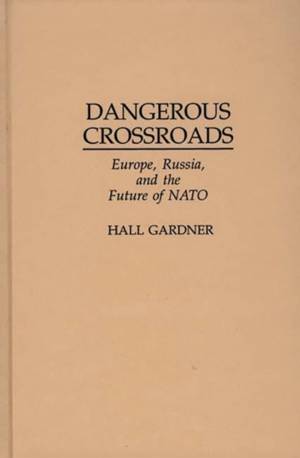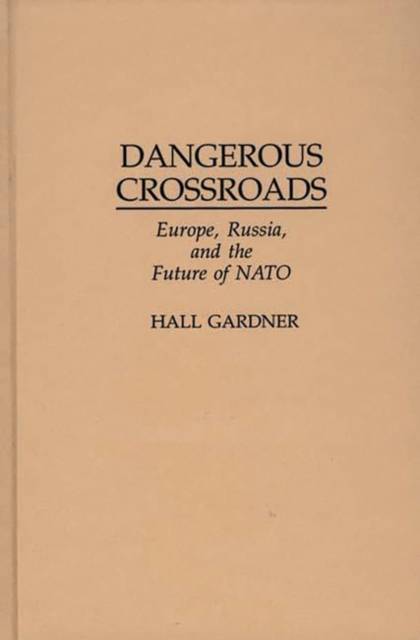
- Afhalen na 1 uur in een winkel met voorraad
- Gratis thuislevering in België vanaf € 30
- Ruim aanbod met 7 miljoen producten
- Afhalen na 1 uur in een winkel met voorraad
- Gratis thuislevering in België vanaf € 30
- Ruim aanbod met 7 miljoen producten
Zoeken
€ 103,45
+ 206 punten
Omschrijving
Gardner explores the global ramifications of the NATO-Russian relationship. He argues that NATO enlargement into Central Europe risks the overextension of NATO's political consensus and could provoke Russia and other states that do not expect to become full members of the alliance. He concludes by proposing an alternative system of security for the region.
Gardner explores the global ramifications of the NATO-Russian relationship. He examines NATO's Partnership for Peace initiative as it relates to Russia, and he argues that NATO risks provoking Russia and other states that do not expect to become full members of the alliance. He contends that if NATO and Russia cannot reach a compromise over a new system of security in Central and Eastern Europe, then Russia could adopt an increasingly assertive Eurasian stance by more closely aligning with potentially anti-Western states such as Belarus, China, India, Iraq, and Iran. Likewise, the possibility of a renewed division of Europe cannot be ruled out. Gardner asserts that it is absolutely necessary to draw Russia into a concerted relationship with the United States and the European Union. He concludes by formulating a viable system of cooperative-collective security for all Central and Eastern European states backed by conjoint NATO, European, and Russian security guarantees. This is a thoughtful and provocative analysis of great interest to policymakers and students of international relations and contemporary defense issues.Specificaties
Betrokkenen
- Auteur(s):
- Uitgeverij:
Inhoud
- Aantal bladzijden:
- 296
- Taal:
- Engels
Eigenschappen
- Productcode (EAN):
- 9780275958572
- Verschijningsdatum:
- 30/08/1997
- Uitvoering:
- Hardcover
- Formaat:
- Genaaid
- Afmetingen:
- 162 mm x 238 mm
- Gewicht:
- 566 g

Alleen bij Standaard Boekhandel
+ 206 punten op je klantenkaart van Standaard Boekhandel
Beoordelingen
We publiceren alleen reviews die voldoen aan de voorwaarden voor reviews. Bekijk onze voorwaarden voor reviews.











